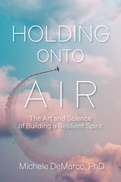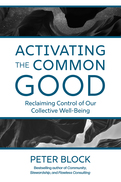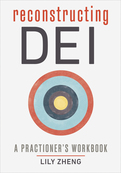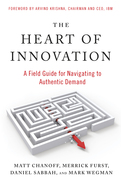Walk Out Walk On (Audio)
A Learning Journey into Communities Daring to Live the Future Now
Margaret Wheatley (Author) | Deborah Frieze (Author)
Publication date: 02/01/2015
- 2012 Nautilus Silver Award Winner in Social Change Category
-
By the bestselling author of Leadership and the New Science and Turning to One Another
-
Provides an intimate experience of how seven healthy and resilient communities took on intractable problems by working together in new and different ways
-
immerses the reader in the experience of each community through stories, essays, first-person accounts, and over 100 color photos
This is an era of increasingly complex problems, fewer and fewer resources to address them, and failing solutions. Is it possible to find viable solutions to the challenges we face today as individuals, communities, and nations? This inspiring book takes readers on a learning journey to seven communities around the world to meet people who have "walked out" of limiting beliefs and assumptions and "walked on" to create healthy and resilient communities. These Walk Outs who Walk On use their ingenuity and caring to figure out how to work with what they have to create what they need.
In India, we meet people from Shikshantar, a community that is rejecting the modern culture of money, with its emphasis on self-interest and scarcity, in favor of a gift culture based on generosity and reciprocity. In Zimbabwe, we discover the capacity people have to adapt and invent new ways of surviving and thriving in the face of total systems collapse.
Through essays, stories, and beautiful color photographs, Wheatley and Frieze immerse us in these communities that are accomplishing extraordinary things by relying on everyone to be an entrepreneur, a leader, an artist. From Mexico to Greece, from Columbus, Ohio to Johannesburg, South Africa, we discover that every community has within itself the ingenuity, intelligence, and inventiveness to solve the seemingly insolvable. "It's almost like we discovered a gift inside ourselves," one Brazilian said, "something that was already there.
Find out more about our Bulk Buyer Program
- 10-49: 20% discount
- 50-99: 35% discount
- 100-999: 38% discount
- 1000-1999: 40% discount
- 2000+ Contact Leslie Davis ( [email protected] )
- 2012 Nautilus Silver Award Winner in Social Change Category
-
By the bestselling author of Leadership and the New Science and Turning to One Another
-
Provides an intimate experience of how seven healthy and resilient communities took on intractable problems by working together in new and different ways
-
immerses the reader in the experience of each community through stories, essays, first-person accounts, and over 100 color photos
This is an era of increasingly complex problems, fewer and fewer resources to address them, and failing solutions. Is it possible to find viable solutions to the challenges we face today as individuals, communities, and nations? This inspiring book takes readers on a learning journey to seven communities around the world to meet people who have "walked out" of limiting beliefs and assumptions and "walked on" to create healthy and resilient communities. These Walk Outs who Walk On use their ingenuity and caring to figure out how to work with what they have to create what they need.
In India, we meet people from Shikshantar, a community that is rejecting the modern culture of money, with its emphasis on self-interest and scarcity, in favor of a gift culture based on generosity and reciprocity. In Zimbabwe, we discover the capacity people have to adapt and invent new ways of surviving and thriving in the face of total systems collapse.
Through essays, stories, and beautiful color photographs, Wheatley and Frieze immerse us in these communities that are accomplishing extraordinary things by relying on everyone to be an entrepreneur, a leader, an artist. From Mexico to Greece, from Columbus, Ohio to Johannesburg, South Africa, we discover that every community has within itself the ingenuity, intelligence, and inventiveness to solve the seemingly insolvable. "It's almost like we discovered a gift inside ourselves," one Brazilian said, "something that was already there.














